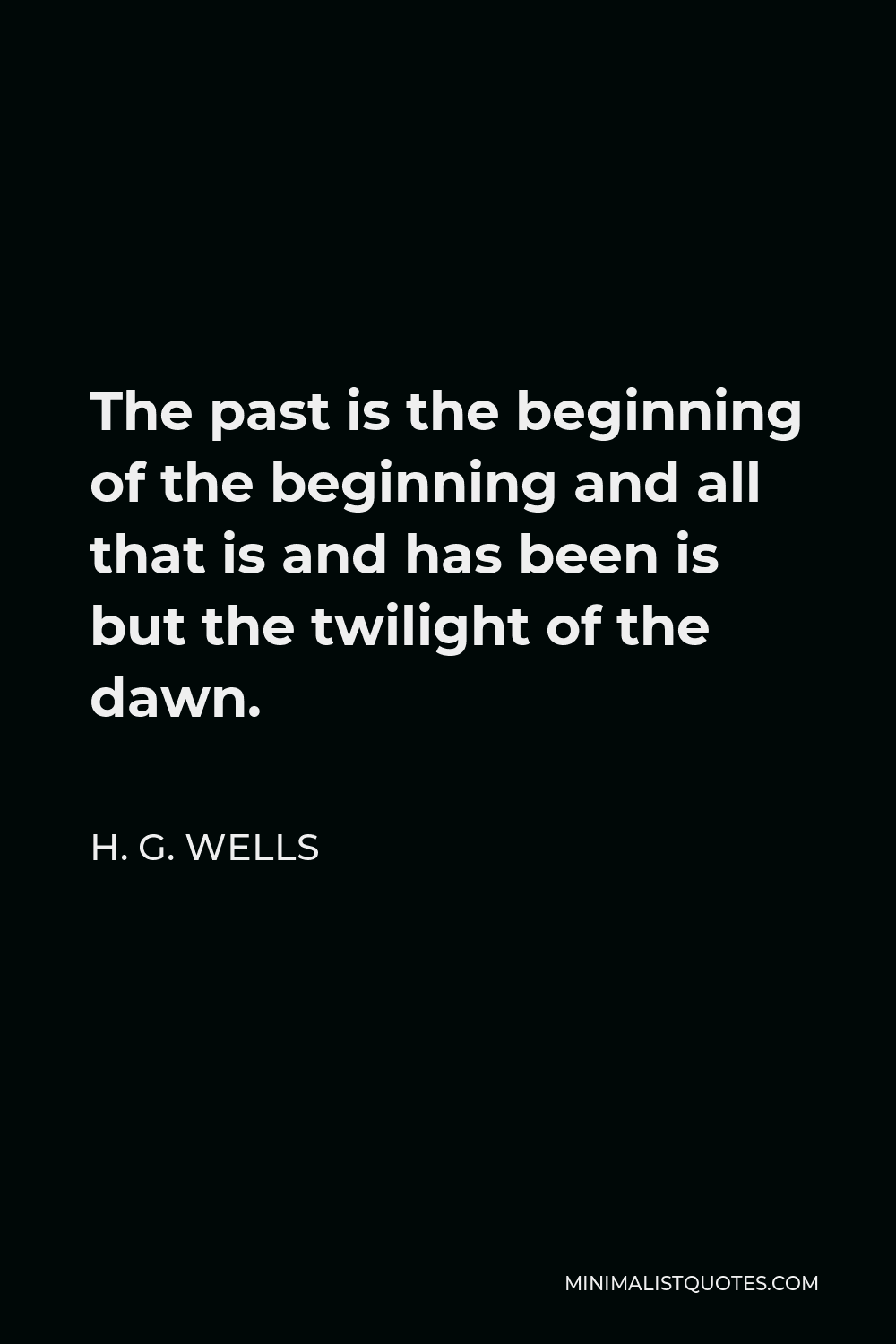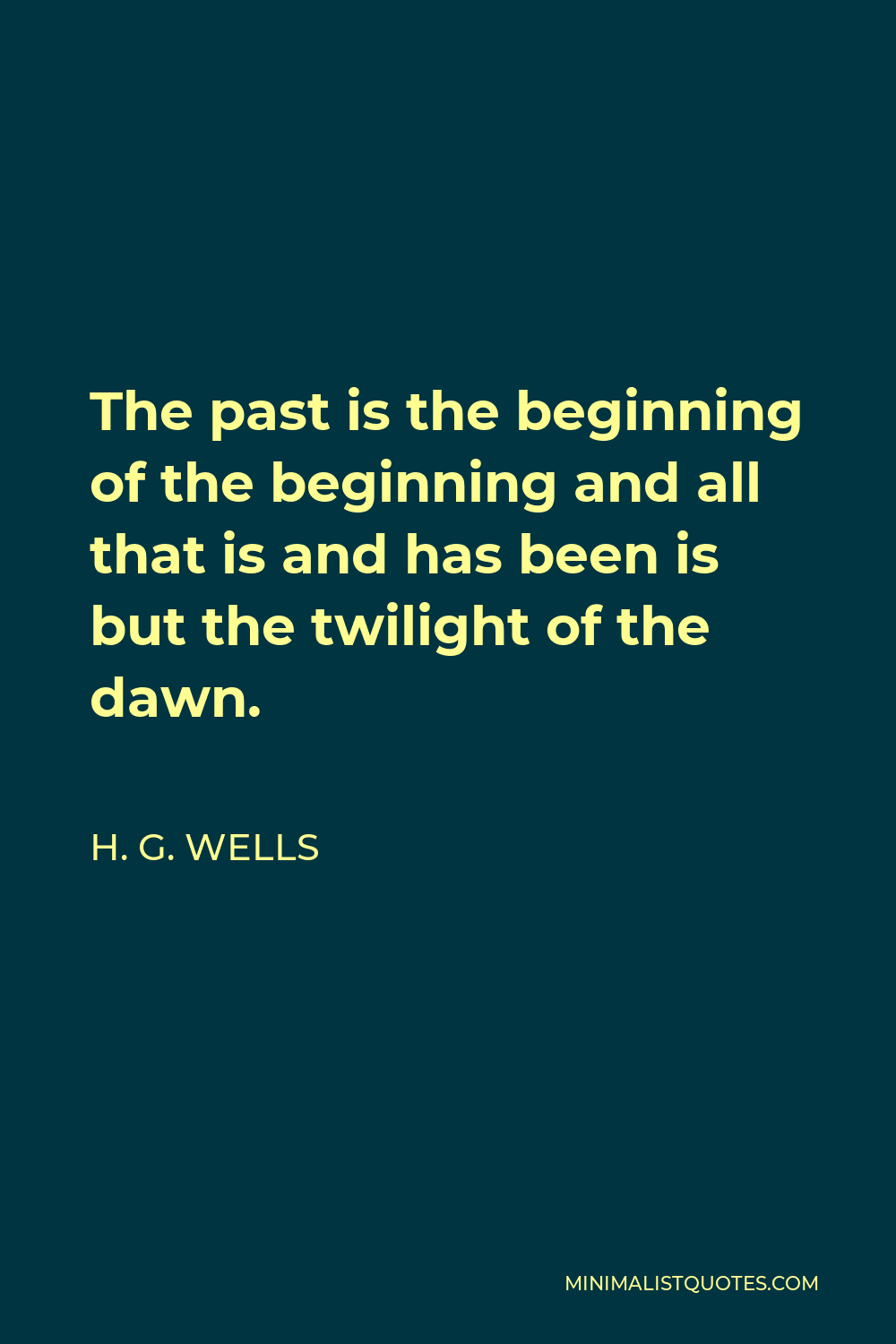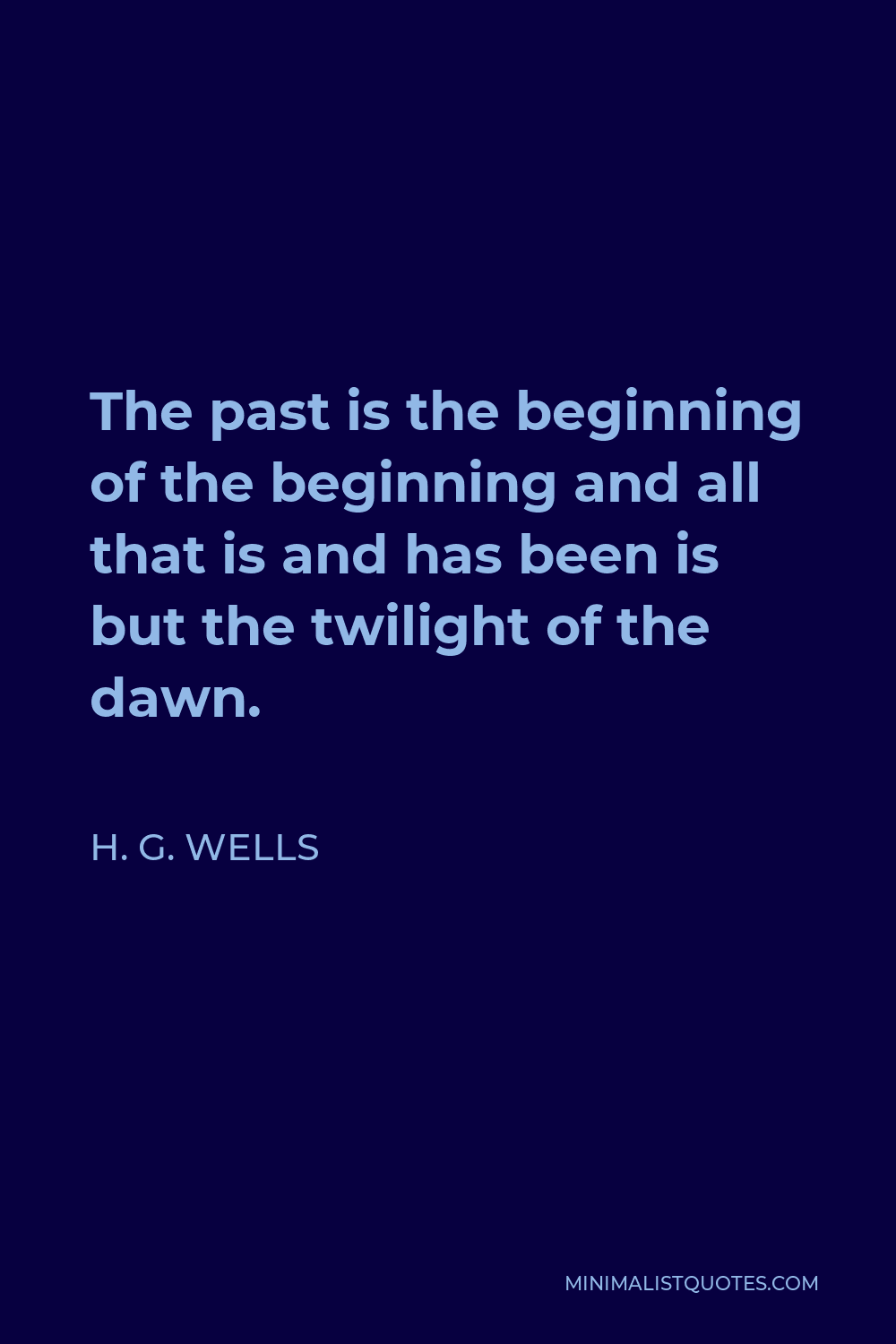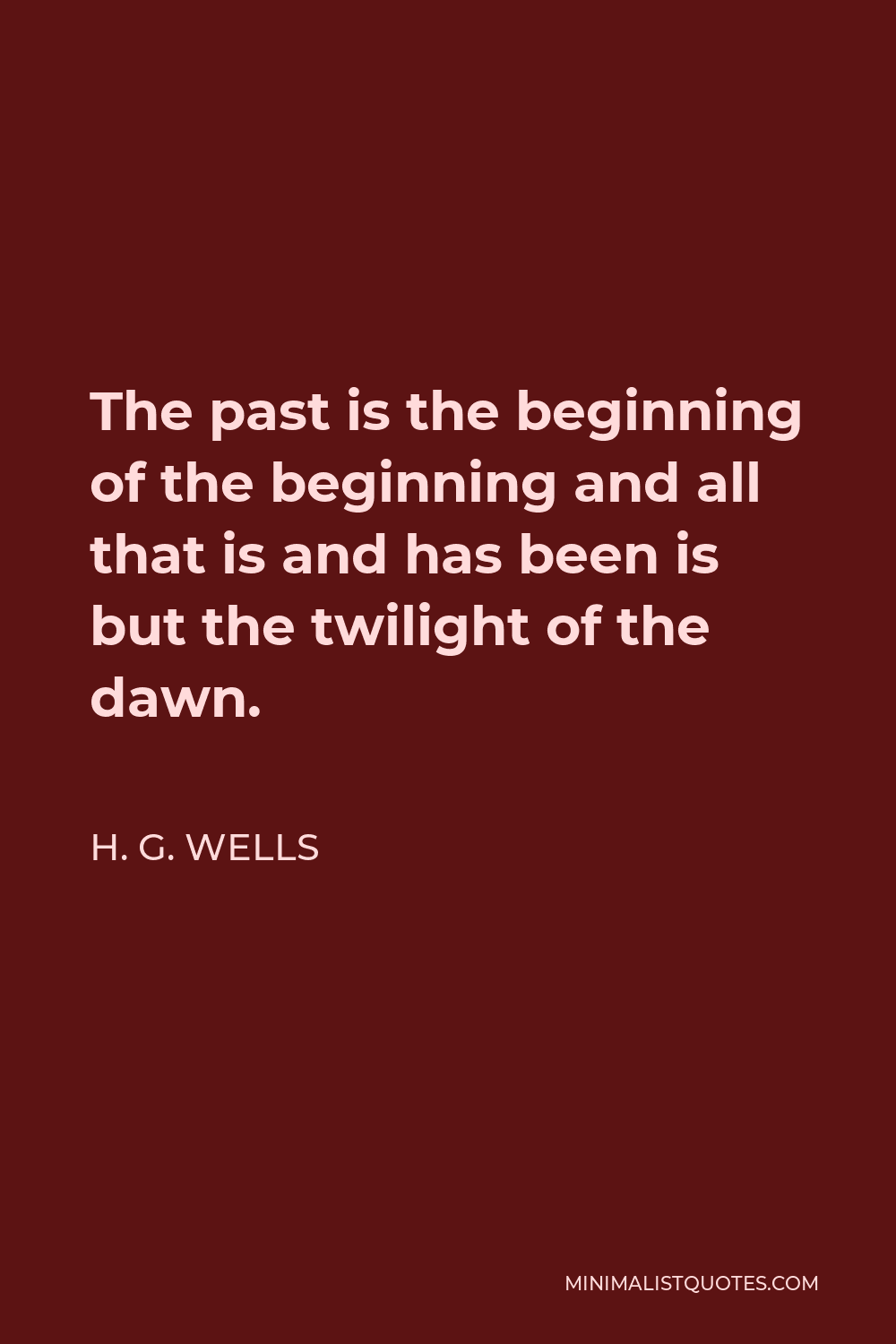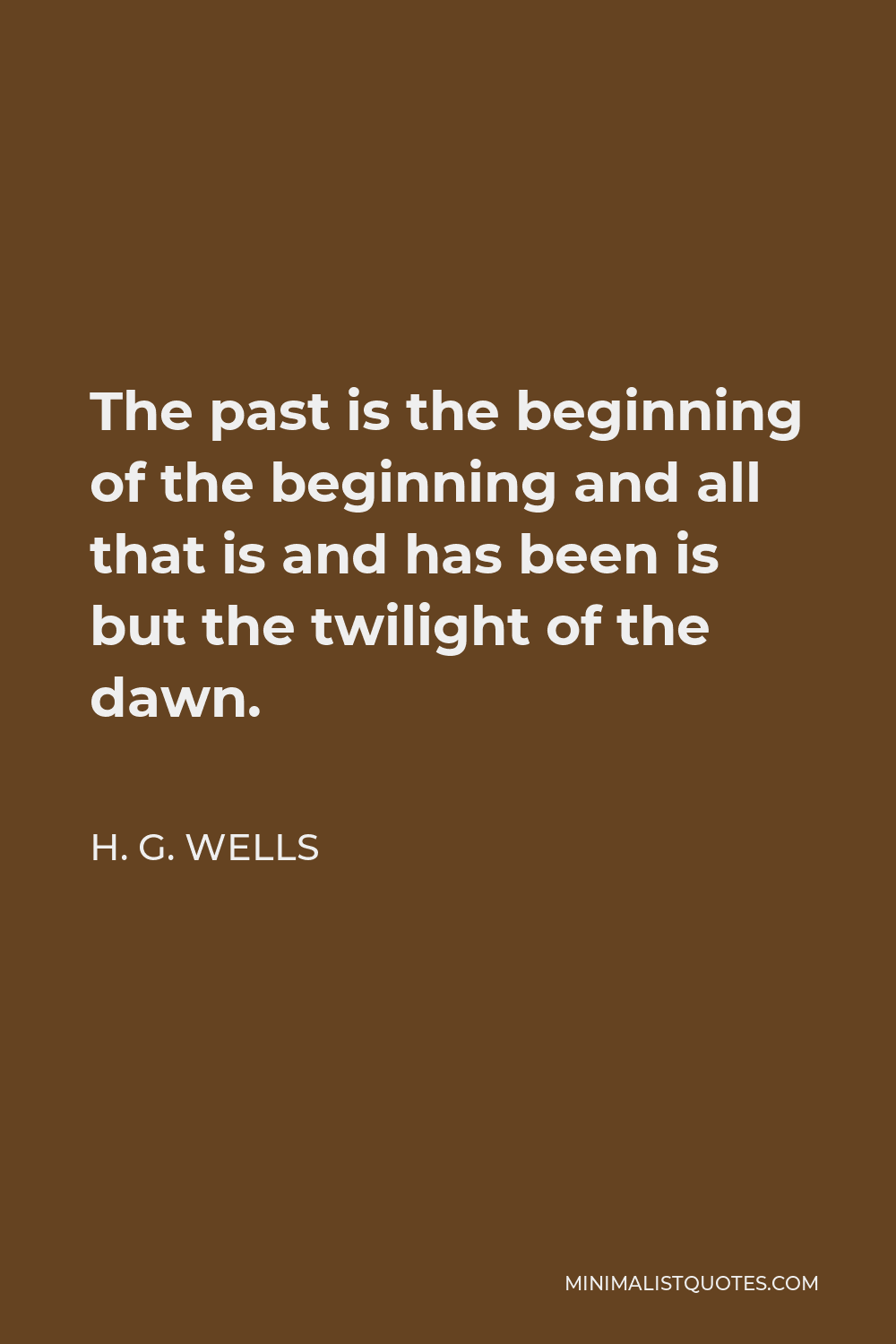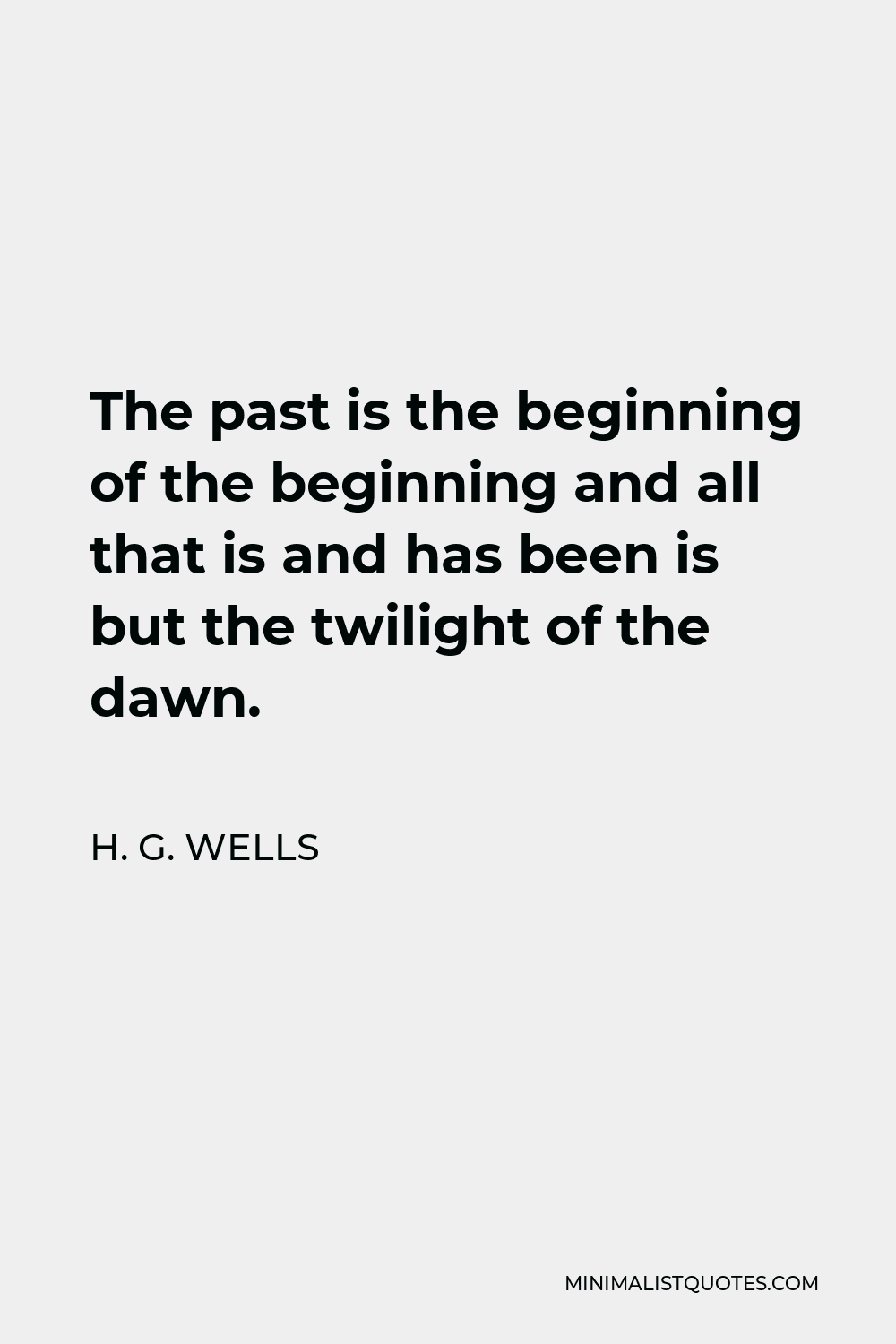We have made hardly any changes in our conception of university organization, education, graduation, for a century – for several centuries.
H. G. WELLSThe past is the beginning of the beginning and all that is and has been is but the twilight of the dawn.
More H. G. Wells Quotes
-







-







The doctrine of the Kingdom of Heaven, which was the main teaching of Jesus, is certainly one of the most revolutionary doctrines that ever stirred and changed human thought.
H. G. WELLS -







What really matters is what you do with what you have.
H. G. WELLS -





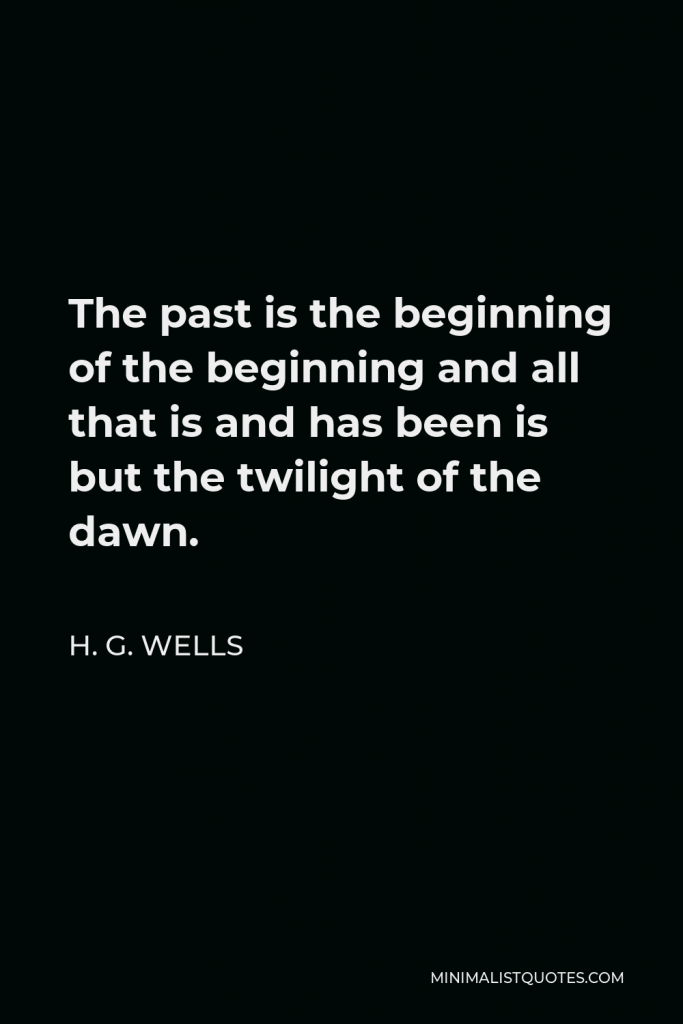

The past is the beginning of the beginning and all that is and has been is but the twilight of the dawn.
H. G. WELLS -







Every time I see an adult on a bicycle, I no longer despair for the future of the human race.
H. G. WELLS -







There is nothing in machinery, there is nothing in embankments and railways and iron bridges and engineering devices to oblige them to be ugly. Ugliness is the measure of imperfection.
H. G. WELLS -







Beauty is in the heart of the beholder.
H. G. WELLS -





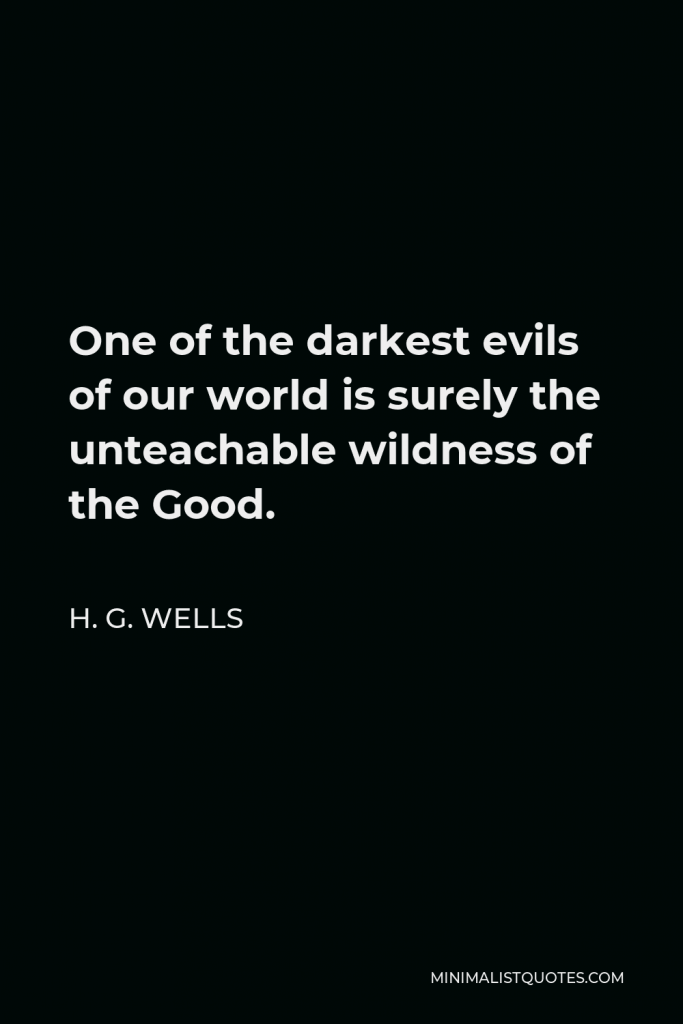

One of the darkest evils of our world is surely the unteachable wildness of the Good.
H. G. WELLS -







History is a race between education and catastrophe.
H. G. WELLS -







I want to go ahead of Father Time with a scythe of my own.
H. G. WELLS -







Human history becomes more and more a race between education and catastrophe.
H. G. WELLS -







No passion in the world is equal to the passion to alter someone else’s draft.
H. G. WELLS -





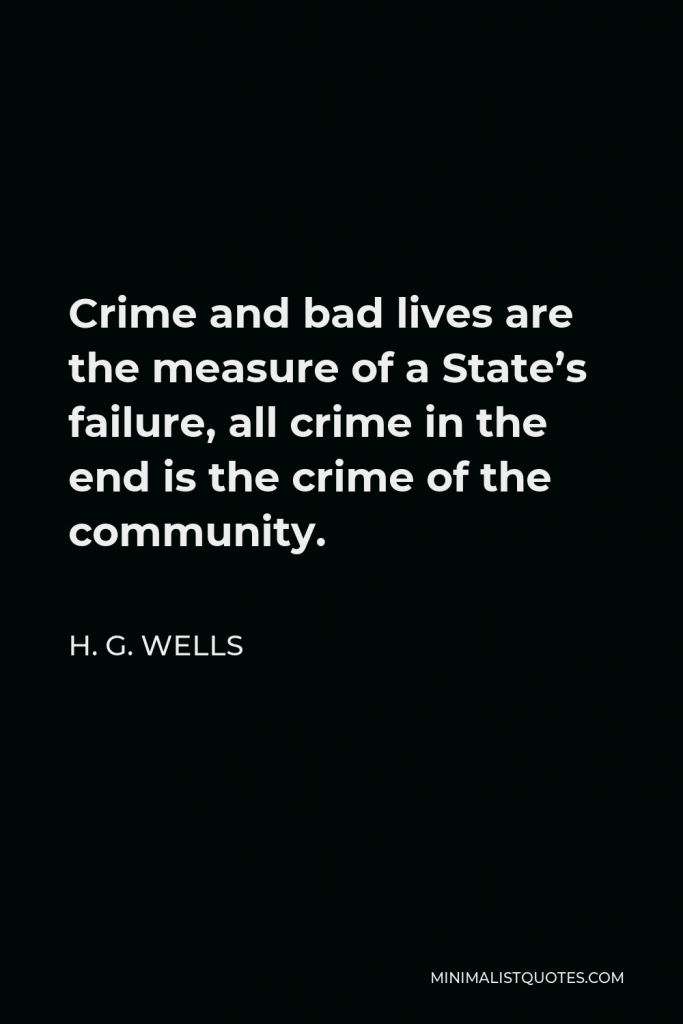

Crime and bad lives are the measure of a State’s failure, all crime in the end is the crime of the community.
H. G. WELLS -







I had rather be called a journalist than an artist.
H. G. WELLS -







Leaders should lead as far as they can and then vanish. Their ashes should not choke the fire they have lit.
H. G. WELLS -





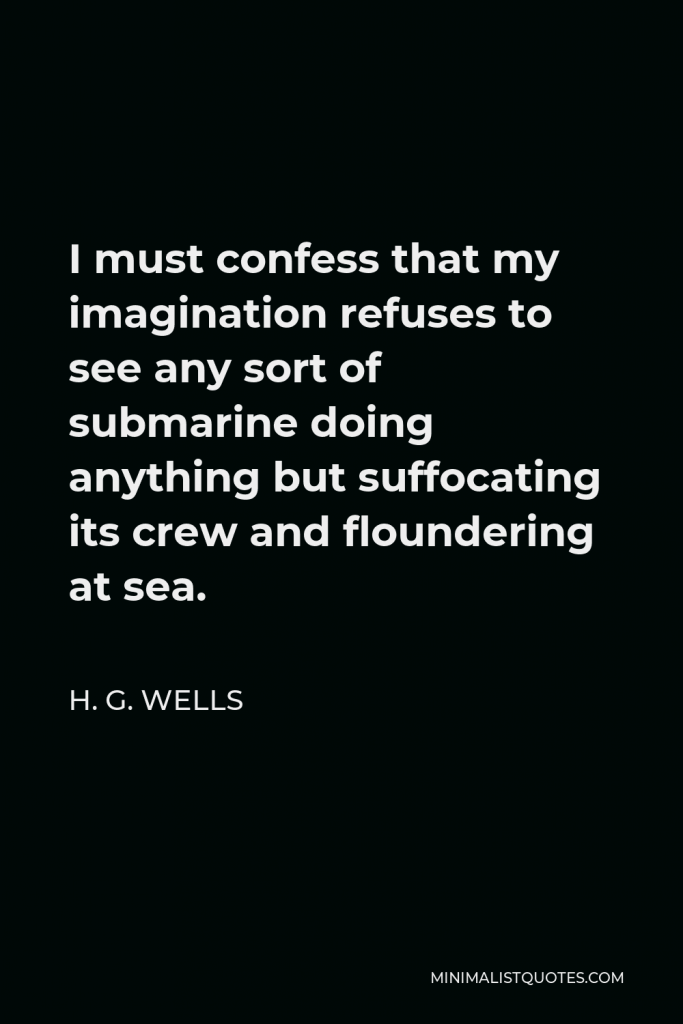

I must confess that my imagination refuses to see any sort of submarine doing anything but suffocating its crew and floundering at sea.
H. G. WELLS
